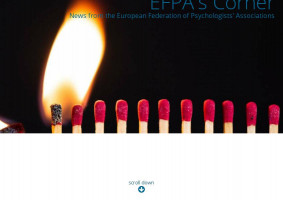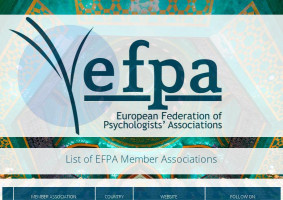
With a brief version of our News Magazine, we wrap up another eventful year! In this edition, EFPA president Christoph Steinebach and EFPA Vice President and Treasurer, Nicola Gale reflect on the past year, and we make sure you have the up to date EFPA Agenda near at hand. We wish you the warmest holidays and we hope to hear from you in 2020!
The editorial board.
news@efpa.eu
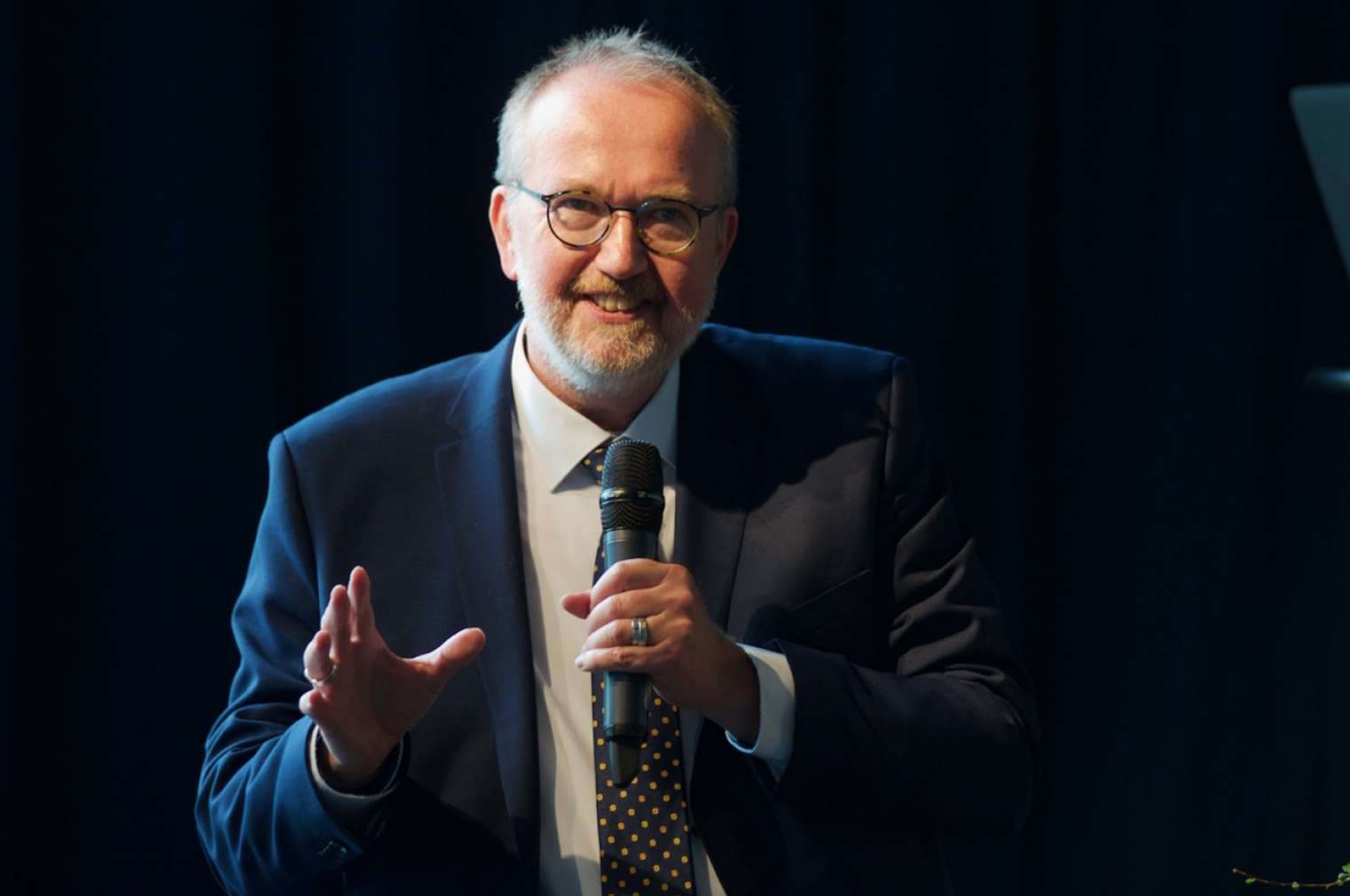
The digitalization of work and social life, concerns about the sustainable use of our resources, violations of human rights: Ignorance leads to stress, exclusion, poverty, limitation of fundamental civil rights. Ignorance would really be life-threatening. There have always been societal problems. However, there is something different today: there is no test version, there is no time to discuss the lessons learned. Because we are experiencing an emergency and, as psychologists, have to help.
With concern we see that many of these difficult developments directly affect psychology. But we can also state with confidence that psychology reduces risks and enables good solutions. This was demonstrated by many of the lectures and symposia at ECP in Moscow. And last but not least, the winners of the EFPA awards stand for a psychology that provides answers to these pressing questions. This view of psychology was also made clear in our press releases on the "World Theme Days". Our Austrian colleagues have put it in a nutshell in their current campaign: Psychology helps!
Many initiatives of our groups sharpen the profile of psychology towards politics. At the same time, the cooperation of the groups and the member associations within our association provides a good basis for further sharpening this profile: The European Semester, the News Magazine and the cooperation via WorkPlace promote internal dialogue. Outwards, we make it clear that psychology stays "on the ball" through cooperation with our partners, through our commitment to EuroPsy and through work in various EU horizon projects. Our General Assembly in Moscow was a turning point towards a strongly goal-oriented management oriented to the concerns of the member associations and the expertise and needs of the volunteers in our groups. Everyone's commitment to our federation and to psychology is impressive. Now it is a matter of keeping our goals in view jointly, supporting each other and advancing psychology for Europe together.
It' s time to say thank you! I thank you all for your commitment to our organisation and its concerns. With your commitment, you will ensure that psychology keeps the ball rolling in the coming years and will make an important contribution to solving current problems! I wish you and your families and friends a Merry Christmas and a peaceful New Year! I am looking forward to seeing you again in 2020! All the best!
Yours,
Christoph Steinebach, EFPA President
Policy Influencing / Advocacy Focus
By: Nicola Gale
What do policy makers across Europe think psychologists can offer them in their work to make things better for the citizens of Europe?
One of the strengths of psychology is the breadth of our discipline which enables us to contribute across many different fields. In terms of profile and impact however this strength can also be a weakness as it can be hard for policymakers to know what psychologists bring to their deliberations and decision making.
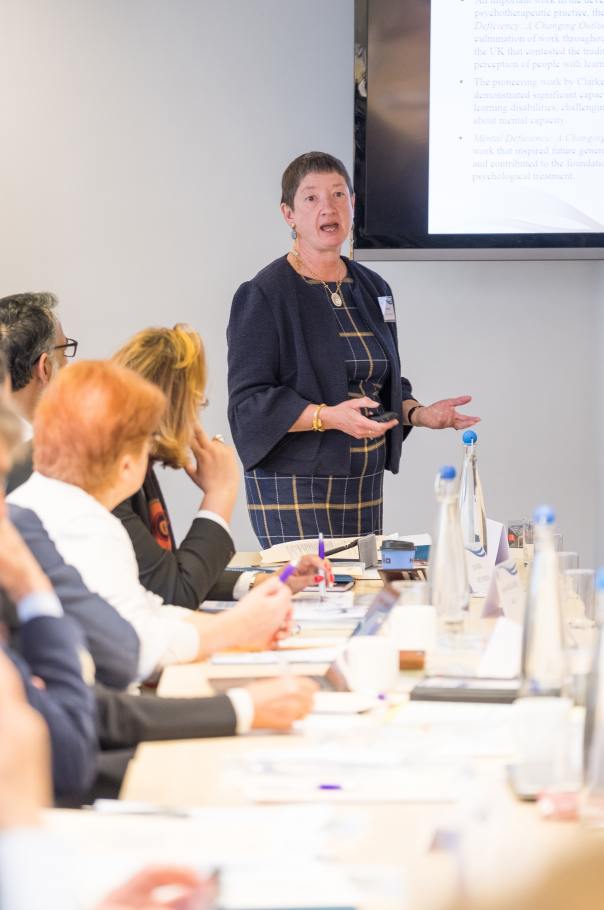
We know from successes elsewhere that there are some things that can make a difference and increase impact. One is cross cutting themes, eg prevention, early intervention, which can be applied with illustrations across the range of our work. Another is focus, addressing a key issue in turn, concentrating minds and resources, and increasing visibility.
_w240_h300_1.jpg)
For policy influencing / advocacy, EFPA intends to develop a substantive process to decide on our themes and areas of focus on a bi annual basis at our General Assemblies. This is likely to comprise a call to our Member Associations to contribute draft objectives for the area(s) they would like to see as EFPA’s areas of focus for policy influencing / advocacy, where EFPA can contribute on the European level with the Commission and the Parliament. This will amplify Member Associations’ voices and means policy can be influenced bi-directionally at the EU and national level.
For the activity period 2019-2021, at our recent Presidents’ Council meeting, we piloted with our Member Association presidents and chief executives who were present, a process for getting input from and gaining consensus among them as to the areas of focus for policy influencing / advocacy for this period. This will be developed further in the new year.
So far, toward the top of the list were:
· Prevention and early intervention especially in health
· Children and young people’s development, mental health and wellbeing
· Climate change with some other areas not far behind (and this is just a first attempt).
Associations will naturally have different views on what should be the focus for external influencing, and it will take time and further discussion to come to more of a shared position. Interestingly, however, way down the list and not seen as important for possible focus were both Anti Microbial Resistance and Vaccination. Yet both are major planks of the EU Health Programme, and areas where psychology input could make a difference to a complex human problem and save many lives.
When EFPA attended this autumn’s EU Health Programme conference in Brussels our sense was our input on these topics would be welcomed. Does our making an investment here perhaps need a rethink? Should we make a contribution in areas that are perhaps outside the traditional focus for many psychologists when there is a clear political and societal need? Comments welcome particularly from psychologists working in this area.
Rome, November 2019
EFPA president Christoph Steinebach visiting representatives of our Italian member association.
Christoph Steinebach was in Rome on November 7, 2019 for meetings with delegates from the ‘Associazione Italiana di Psicologia AIP as well as with ‘Consiglio Nazionale Ordine Psicologi CNOP’ and the umbrella organisation ‘Italian Network of Psychologists Associations INPA’.
On invitation of the AIP he spoke at this meeting with Italian colleagues about the current situation of psychology in Italy and Europe. Together they developed perspectives for the ongoing EU research projects. In addition, opportunities for closer cooperation on environmental psychological topics were identified.
_w754_h536_1.jpg)
In the afternoon, at the meeting with EFPA’s Italian member association INPA, further perspectives for a more intensive cooperation in the future were discussed with the president Fulvio Giardina.
‘The exchange of ideas and the discussions showed once again what a valuable partner INPA is for a positive development of psychology in Europe’, says Christoph Steinebach.
_w754_h592_1.jpg)
RECOVER-E: LaRge-scalE implementation of COmmunity-based mental health care for people with seVere and Enduring mental ill health in EuRopE.
EU project funded by the European Commission under the Horizon 2020 framework and led by the Trimbos Instituut Utrecht (NL) – Period: Jan 2018 – June 2021. www.recover-e.eu
The RECOVER-E project consists of the development of multidisciplinary community mental health teams (including psychiatrists, psychologists, nurses, social workers, and peer workers) in the 5 following countries: Bulgaria, Croatia, Macedonia, Montenegro and Romania.
The multidisciplinary community mental health teams will provide treatment based on a locally adapted version of the Flexible Assertive Community Treatment (F-ACT) service delivery model.
The community mental health team will be oriented specifically towards treatment for people with severe mental illness SMI (bipolar disorder, schizophrenia, or severe depression). Both the service delivery approach and the interventions delivered within the Community Mental Health Team’s (CMHT) are evidence-based.
CMHT’s support or treat people with mental disorders in a domiciliary setting, instead of a psychiatric hospital. The array of community mental health services varies depending on the country in which the services are provided.
The teams are now being developed through a comprehensive capacity building approach consisting of training, ongoing mentoring and supervision, team strengthening sessions such as reflection sessions, and improvement plans based on feedback from service audits.
EFPA is involved in the project and under the lead of the Fundacion Mundo Bipolar FMB Spain, in charge of dissemination together with the EPA (European Psychiatric Association).
EFPA’s contribution at congresses:
In 2020: EFPA will prepare a workshop/symposium at the International Congress of Psychology 2020 , in July in Prague (Czech Republic) and will also invite the member associations in the three countries Bulgaria, Croatia and Romania to take part in this event in Prague.
In 2021: if prolongation of the project is granted, there will be a final event of the project at the European Congress of Psychology 2021 in July 2021 in Ljubljana (Slovenia) where EFPA will share the outcome of the project (scientific results, policy recommendations, publications, guidelines and standards).
Brussels, Sabine Steyaert.


_w504_h200_1.jpg)
_w504_h326_1.jpg)

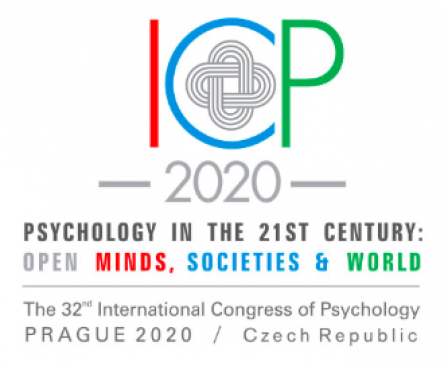
Follow us on

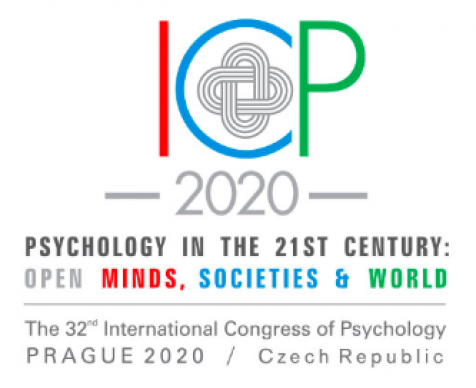
_w646_h336_1.jpg)

